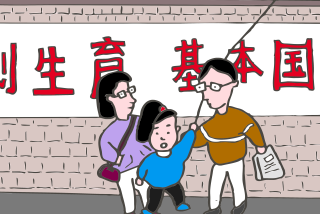Monitor Aid, Don’t Withhold It : Beijing’s harsh population controls shouldn’t keep U.S. from giving to U.N. program
- Share via
The horrors of China’s coercive population control policy are well known. Compulsory sterilization, involuntary abortions and infanticide are among the tools that the Chinese government reportedly has used to keep a lid on population growth in that nation of 1.18 billion.
The U.N. Population Fund--also known as the UNFPA, its original acronym--is a leading agency working to improve family planning services not only in China but around the world.
The UNFPA has had some modest achievements in China, successfully encouraging the government to manufacture safer IUDs, training family planning workers and teaching population control methods less Draconian than current ones. But hope for continued successes there, and elsewhere, may be dimming.
In recent months, President Clinton wisely declared his intention to resume U.S. funding for the UNFPA. He has asked Congress for $50 million to support UNFPA activities worldwide in the next two years.
U.S. contributions to the fund ended in 1985 when the Reagan Administration charged that UNFPA funds supported “a program of coerced abortion or involuntary sterilization” even though a federal review of the UNFPA’s China program concluded just the opposite--that the fund does not support abortion or coercion. Since then, the UNFPA carried on there and elsewhere without U.S. help; 1990-95 spending in China will be $57 million.
Now, evidence of a new decline in China’s fertility rate and renewed charges of forced sterilization have justifiably alarmed the international community and jeopardized the prospect of renewed U.S. funding to the UNFPA.
A House subcommittee in recent weeks amended foreign aid legislation to bar the use of U.S. funds in the UNFPA’s program in China and to possibly delay renewed U.S. contributions if the agency remains active there. But this position hurts only the women in China and the 100 other countries who depend on the UNFPA.
Congress should not use concerns for women’s rights in China--and for human rights in general--to deny funds to an agency that may prove to be a factor in ending contraception coercion in China, in addition to providing better contraceptive services in many other nations.
Rather than reducing or eliminating U.S. contributions to the U.N. fund, the United States should take appropriate steps to end abuses. Washington should continue to raise its concerns about coercive birth control practices in China and take steps to ensure that no U.S. funds will go to those purposes.
For the women of China, this is the most humane and wisest course.
More to Read
Sign up for Essential California
The most important California stories and recommendations in your inbox every morning.
You may occasionally receive promotional content from the Los Angeles Times.













